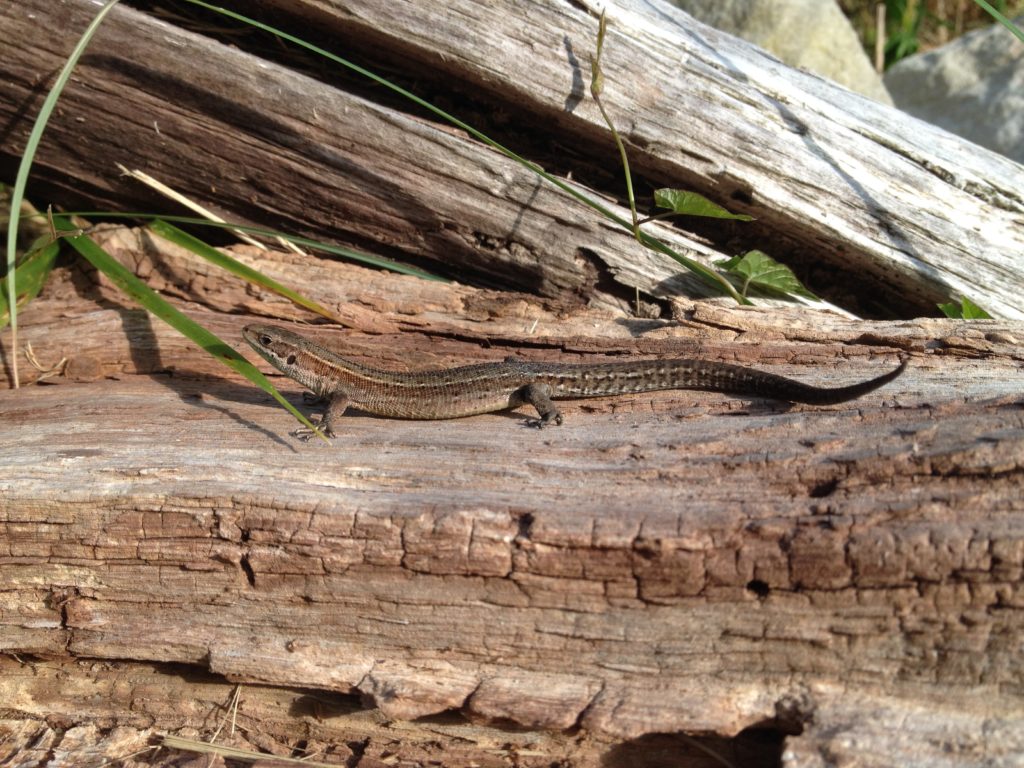Thermoregulation is critical for ectotherms as it allows them to maintain their body temperature close to an optimum for ecological performance. Thermoregulation includes a range of behaviors that aim at regulating body temperature within a range centered around the thermal preference. Thermal preference is typically measured in a thermal gradient in fully-hydrated and post-absorptive animals. Short-term effects of the hydric environment on thermal preferences in such set-ups have been rarely quantified in dry-skinned ectotherms, despite accumulating evidence that dehydration might trade-off with behavioral thermoregulation. Using experiments performed under controlled conditions in climatic chambers, we demonstrate that thermal preferences of a ground-dwelling, actively foraging lizard (Zootoca vivipara) are weakly decreased by a daily restriction in free-standing water availability (less than 0.5°C contrast). The influence of air humidity during the day on thermal preferences depends on time of the day and sex of the lizard, and is generally weaker than those of of free-standing water (less than 1°C contrast). This shows that short-term dehydration can influence, albeit weakly, thermal preferences under some circumstances in this species. Environmental humidity conditions are important methodological factors to consider in the analysis of thermal preferences.

From PLOS ONE: https://dx.plos.org/10.1371/journal.pone.0247514
